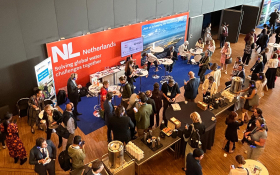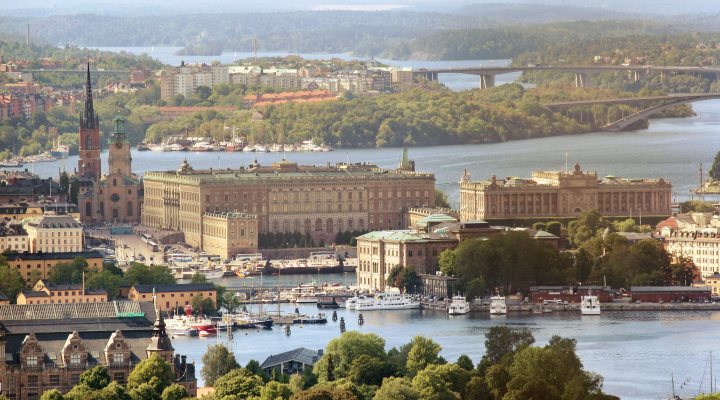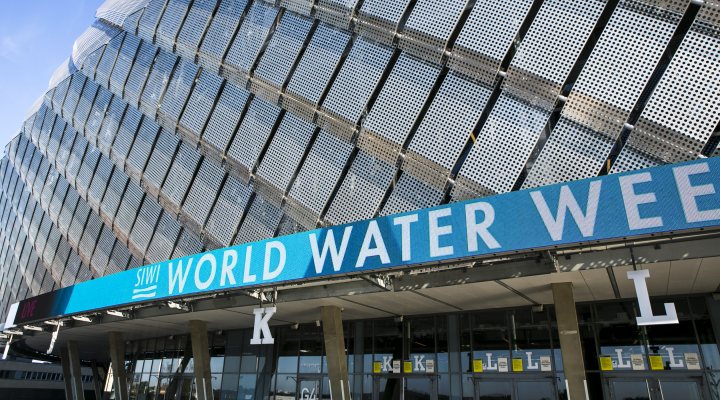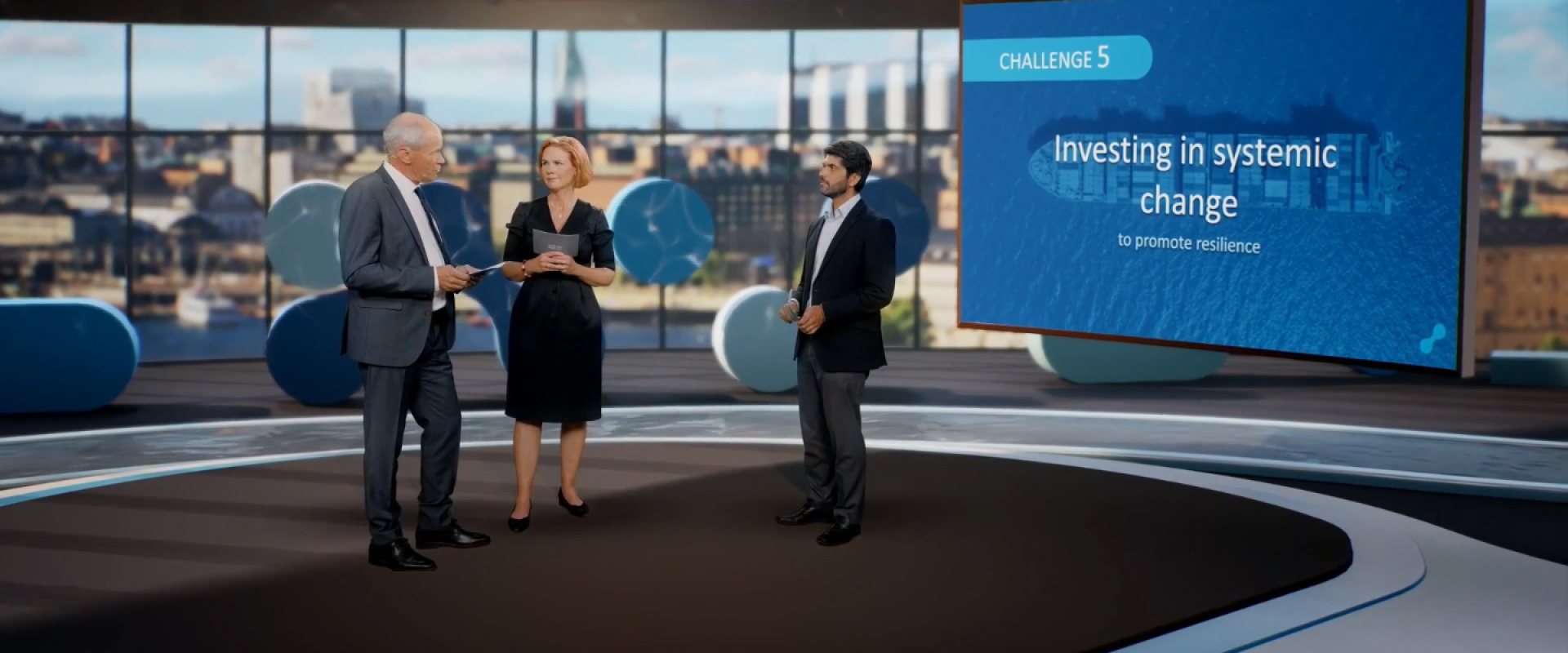
WWWeek: Freshwater should be integrated in climate agenda
At the official opening of the online edition of the Stockholm World Water Week, Professor Johan Rockström of the Potsdam Institute for Climate Impact Research said that scientific reports are piling up on the linkage of some fifteen elements that regulate the state of the climate system. ‘Nine of them show instability and they all link to freshwater’.
'Freshwater must be integrated within the climate agenda,' Rockström said in his keynote.
The Stockholm World Water Week 2021 started on Monday 23 August covering some 400 online sessions till Friday.
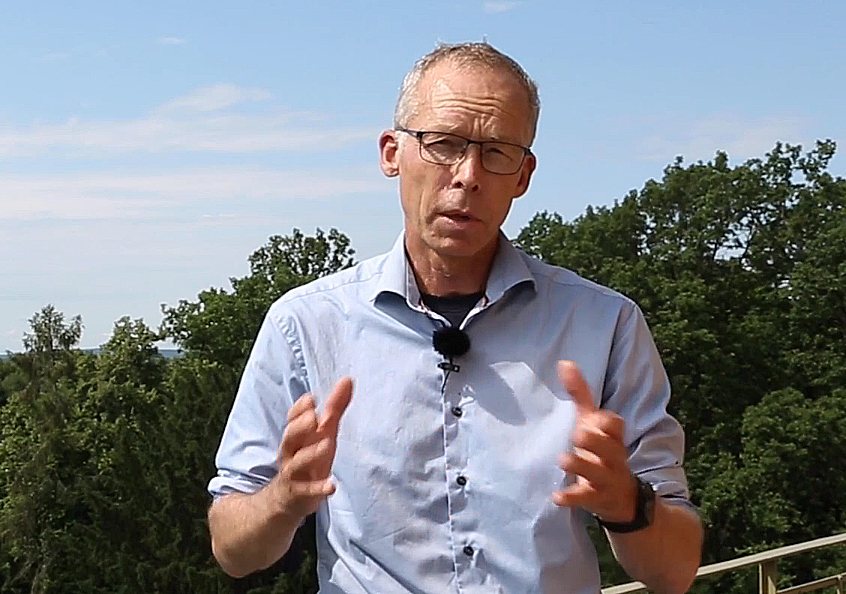

Tipping points
‘We have many scientific papers with projections into the future that show what will happen if we let 2 degree warming happen’, said Rockström, preluding on the publication of IPCC’s next report in February on the effects of climate change. ‘We have more and more evidence of how the earth’s biophysical system is impacted and how systems are connected’. As an example he mentioned the freshwater system.
‘Take the rapid melt of the ice sheet on the Arctic’, he explained. ‘This releases freshwater in the North Atlantic and is slowing down the heat conveyor belt in the North Atlantic. This impacts the South American monsoon, increasing droughts and wildfires. This releases more greenhouse gasses.’
As a result, he went on, more warm water is held in the southern oceans that can explain the accelerated melting of some of the West-Antarctica ice shelves. ‘Altogether this leads to the projection that sea levels have the potential to rise with one meter over the next one or two centuries.’
‘Freshwater is, next to biodiversity, oceans and climate, an unnegotiable SDG goal. For a safe future we have to stay within the planet's boundaries’, Rockström warned.
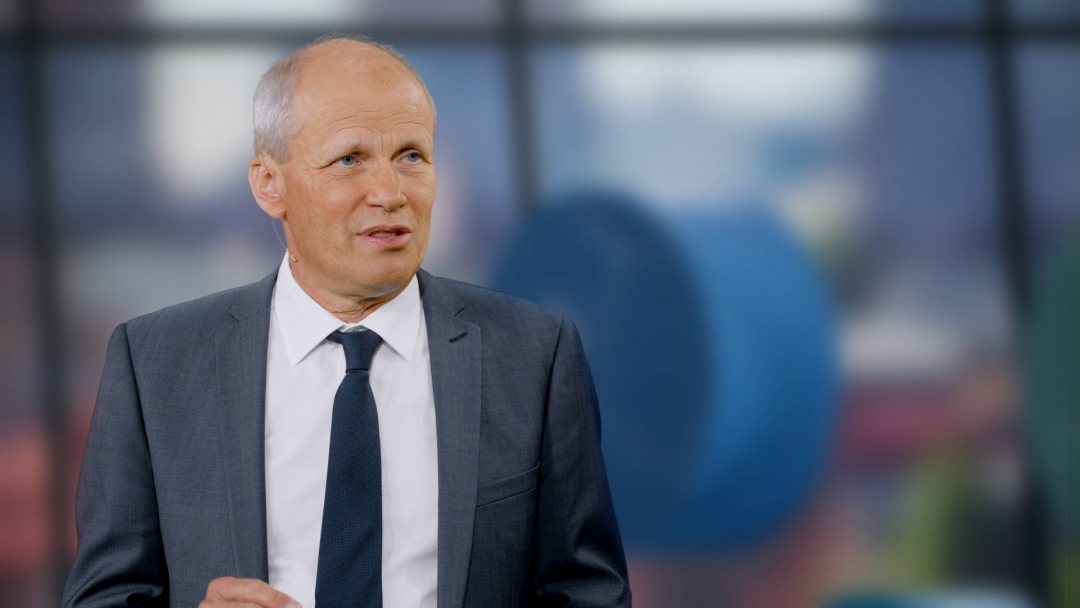

Five challenges
SIWI-director Torgny Holmgren explained the five challenges on climate resilience that will be addressed in the 400+ online sessions. ‘We have to build fair societies as the poor and women suffer most from climate change. We must work with nature to stay within the planet boundaries. The third challenge is the transformation of value chains and move towards a more circular economy. On the issue of urban resilience, we have to rethink our cities and provide dwellers with clean water and safe sanitation. Finally we have to invest in systemic changes and innovate our institutions’, Holmgren said.
The programme of this year’s Stockholm World Water Week also focuses on accelerators. Together with its partners, SIWI organises several sessions on communication (with the Grundfos foundation) and on leadership in business (with the Government of the Netherlands).
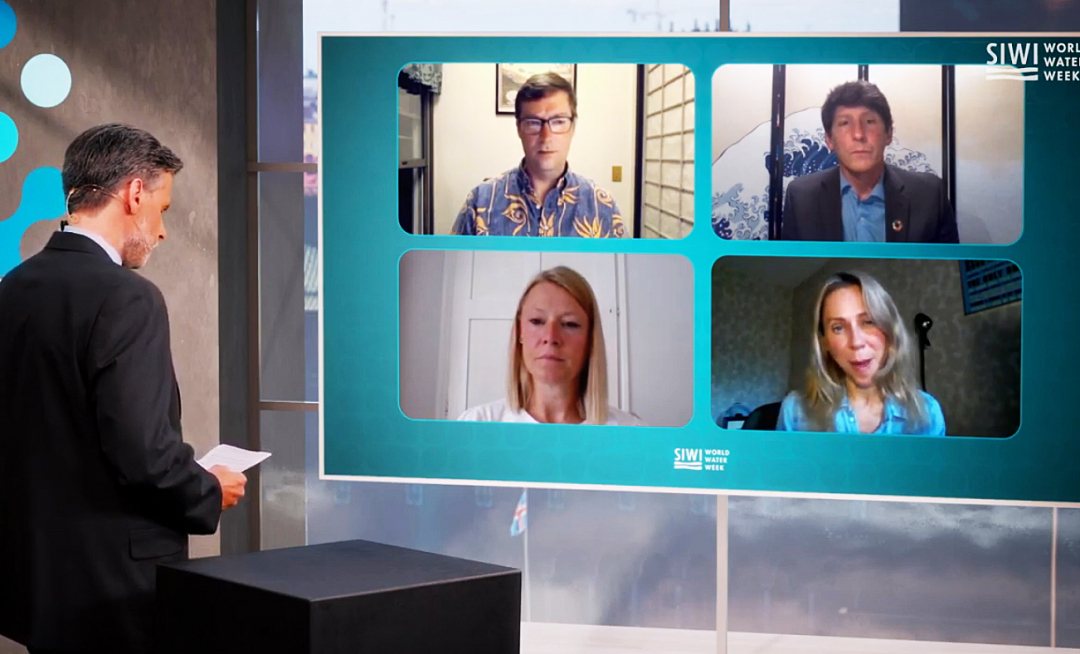

Aligning public-private actions
During the first session on leadership in Business Accelerator, Jason Morrison, head of CEO Water Mandate, called for shared ambitions by the public and private sector. “If you open up the door you need to have shared ambitions so you can align on actions that are needed in water stressed regions’, Morrison said.
CEO Water Mandate is an initiative of almost 200 companies that endorse water stewardship with a common goal to make quantifiable commitments to reduce water stress by 2050. ‘The shared ambition should not only be about water quantities but also about water quality and water accessibility’, he added.
According to Morrison, companies that use water stewardship start to understand that their actions on water have multiple benefits, such as energy savings, reduction of greenhouse gasses, soil improvement and even the well-being of food supplying farmers. ‘These benefits are now being identified and qualified in order to monetise them. This will mainstream investments and benefit communities’, he expects.
Morrison is not surprised that companies panic once they understand the water cycle and its potential risk for their business. ‘When they come to water, it is important that we have structures in place for their investment to have immediate impact’. As an example he mentioned the Water Fund of the Nature Conservancy that supports sustainable resource water projects.
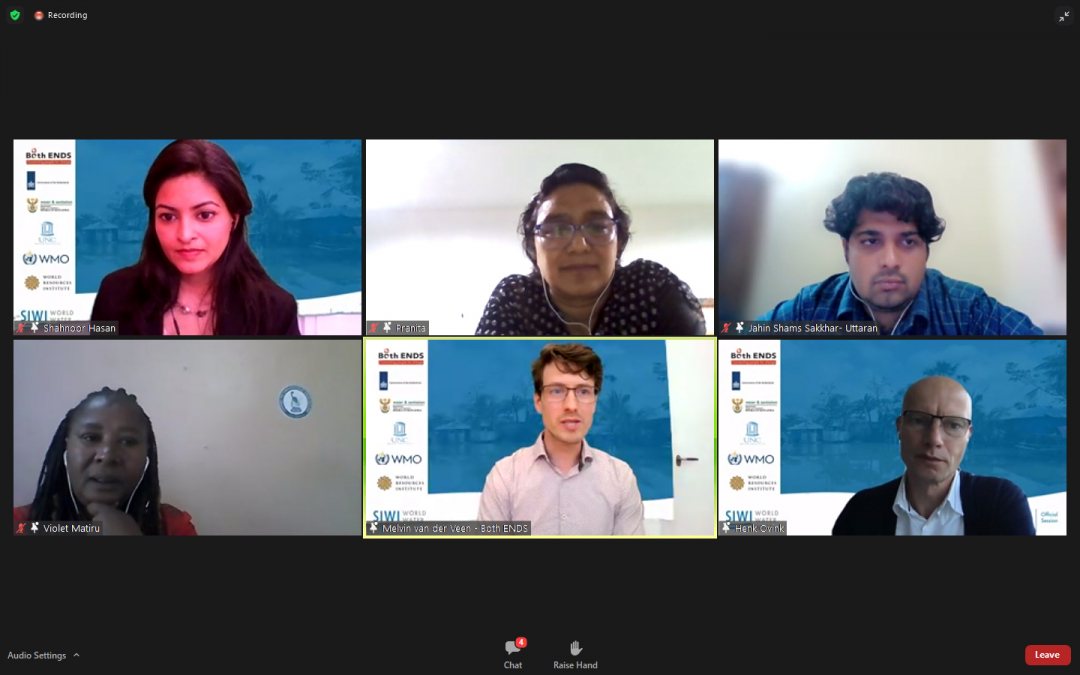

Politicizing water
In the session Navigating uncertain waters, Melvin van der Veen of Both Ends addressed the urgent need to prioritize water in order to make choices on the distribution of water. ‘It is inevitable to politicize water if we want to build resiliency faster and break with the unequal distribution of water’,
In the session, Violet Matiru, founder of Millennium Community Development Initiatives, made a strong plea for the right to water for the poor. ‘Water is becoming a highly valuable commodity and politicians that talk about the right to water do not understand what is happening in the informal setting of Nairobi where people get shut off from their water supply.’
Matiru highlighted the two forces in Kenya of privatisation of the water supply and the human right to water. ‘They are pushing each other to the point where the private sector builds a sense of entitlement to water as they consider economic development as more important than poor people getting access to water’, she said.
‘Public-private partnerships cause more mis balances’, she warned. ‘Ít brings international financial institutions with consultancies that produce very technical reports that local people cannot understand. Much of the information that is collected, is extremely technical and all in English. It does not reach the local communities, making it impossible for communities to participate in the decision making on water projects.’
See the full SWWW-programme and the registration options on www.worldwaterweek.org.
More information on the Dutch involvement in the Stockholm World Water Week 2021 can be found on this website.
Also, stay tuned for more World Water Week related news items on this website.




